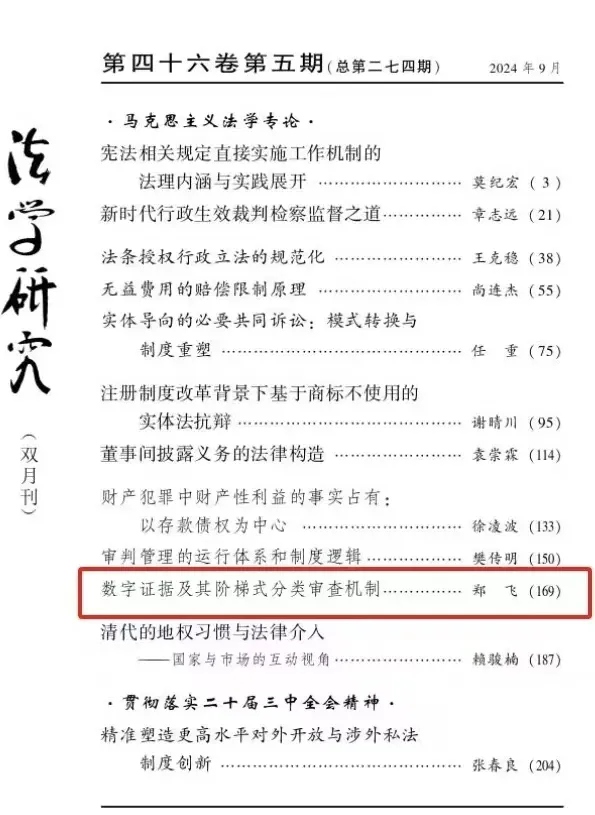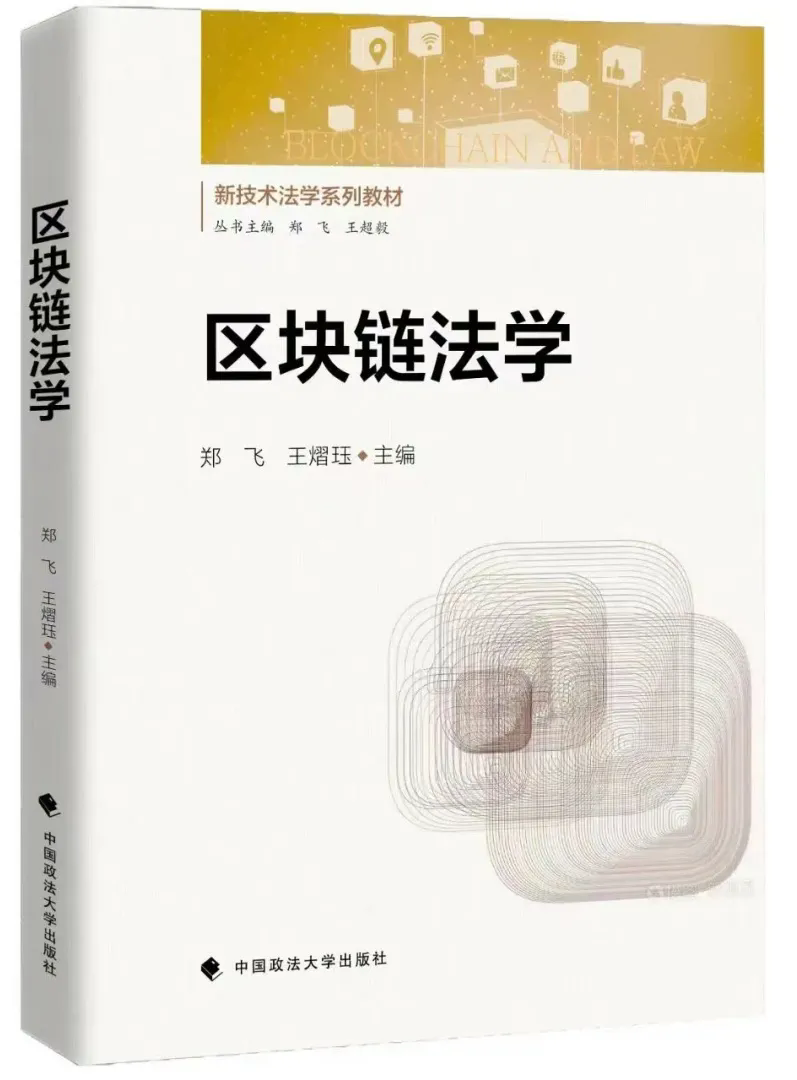The 5th issue of the Journal of Legal Studies in 2024 published the latest paper of Zheng Fei, a part-time lawyer of Beijing King&Capital Law Firm and vice dean of the School of Law of Beijing Jiaotong University, entitled “Digital Evidence and Its Stepped Categorization Review Mechanism”. This is the second time that Mr. Zheng Fei has published an article in the journal after his paper “Hierarchy of Evidence Attributes” was published in Issue 2 of the Journal of Legal Studies in 2021.

This paper is the latest research result made by Zheng Fei in the cross field of evidence jurisprudence and new technology jurisprudence, and it is his second paper published in the “three major journals of jurisprudence” this year. At the beginning of this year, Zheng Fei published the article “Rethinking and Reconstructing the Legalism of Evidence Types” in the 1st issue of China Law Journal 2024. The publication of the three papers in the series of “Three Major Journals of Law”, known as “Three Major Journals of Law”, has played an important role in enhancing the academic influence of the School of Law in the national jurisprudence circle.

Executive Summary
The digitization of evidence presents five basic orientations--electronic, blockchain, big data, artificial intelligence and virtual simulation, thus forming five basic types of digital evidence, including electronic data, blockchain evidence, big data evidence, artificial intelligence evidence and virtual simulation evidence.
Due to the development of digital technology, the traditional electronic data concept and evidence rules can no longer effectively cover and regulate the existing various types of digital evidence. Based on the theory of digital space and the differences in the technical proof logic of different types of digital evidence, the “audiovisual materials and electronic data” in Article 50(2)(8) of the 2018 Criminal Procedure Law should be uniformly modified into a kind of integrated and open digital evidence, so as to accommodate all kinds of digitized evidence produced by the iterative upgrading of digital technology, and to specify in the judicial interpretation that the concept of digital evidence and the rules of evidence of virtual simulation can no longer effectively cover and regulate the existing digital evidence. And in the judicial interpretation of the specific provisions of various digital evidence review judgment rules, so as to form a kind of electronic data evidence rules based on the ladder classification review mechanism.
At the same time, from the necessity review and substantive review of evidence adoption level, should also establish a digital evidence ladder review update mechanism, in order to cope with the technical development may bring to the impact of evidence review.

In recent years, Zheng Fei has been focusing on the study and organized scientific research of evidence jurisprudence and new technology jurisprudence. In the construction of discipline system, Zheng Fei leads the new technology law team of NJTU Law School, which has constructed a discipline system consisting of six major directions, including artificial intelligence law, blockchain law, data law, cyber law, biotechnology law, and space technology law, forming a discipline pattern of “one body, two wings, six major directions”.


In terms of specific practice, Zheng Fei has also organized the establishment of the national “Virtual Teaching and Research Office of New Technology Law” and “Virtual Research Group of New Technology Law”, and produced the “Report Series on the Development of the Rule of Law on New Technology in China”, “Report Series on the Development of the Rule of Law on New Technology in China” and “Report Series on the Development of the Rule of Law on New Technology in China”. It has successively produced the “Report Series on the Development of the Rule of Law in New Technologies in China”, “Research Series on New Technologies Law” (funded by the National Publication Fund), “Series of Teaching Materials on New Technologies Law”, etc. Meanwhile, it will soon launch the “Series on New Technologies Model Law” and “Series on New Technologies Law”, and “Series on New Technologies Law”. At the same time, the “New Technology Model Law Series” and the “New Technology Jurisprudence Case Commentary Series” will soon be launched.



